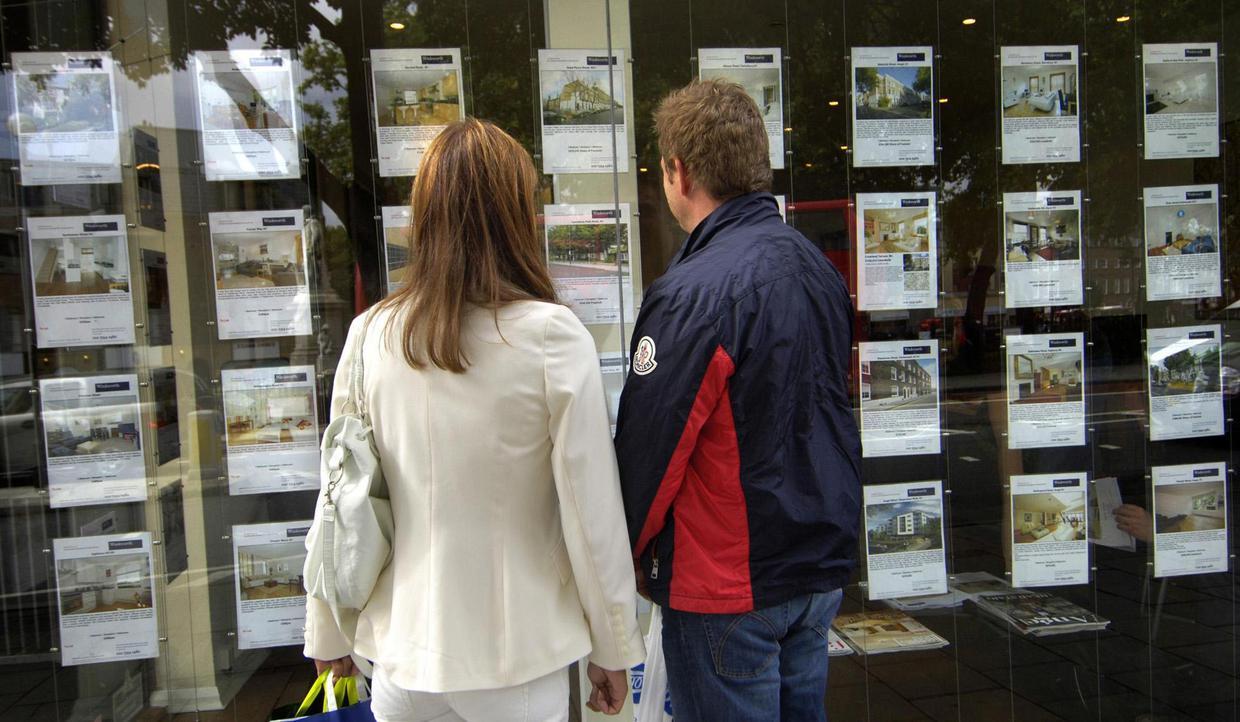An extension to the Help-to-Buy Scheme
Introduced in 2017, the relief scheme for buyers of new homes has thus helped 15,000 people to get on the housing ladder.
The Finance Minister has now been pushed it out to the end of 2025.
While the scheme initially helped make building houses financially viable for developers, it is becoming increasingly relevant again as building materials costs go through the roof. It will also incentivise builders to keep building homes for sale to punters rather than funds.
· A new €500 tax credit relief for renters
This tax credit worth €500 each year will be backdated to 2022 and paid from 2023.
But this amount covers just one third of the annual increase in the average rent that average Irish tenancies have paid to the 12 months to Q1 2022 alone and in a market where rents are rising at 9.2pc per annum.
Finance Minister Paschal Donohoe did not clarify whether one person gets this tax benefit only in a household or whether all sharing tenants participating in one tenancy will benefit.
If it’s on a per lease basis, then this will create problems for house share tenants contributing equally.
· A 10pc penal tax on concrete blocks and concrete products
This is being levied to pay for the Mica Redress Scheme, presumably in an effort to get the industry to pay for the problems it has created. The tax aims to raise €80m per annum.
This amount will certainly end up being passed on to the developer and added to the completion price of a new house.
Ultimately it will result in home buyers paying for the industry’s errors and lead to an unwelcome increase in the price of new homes which are already beyond the reach of many.
· Tax Deductions for Landlords – To Double the Amount of Pre Letting Expenses Allowable to €10,000.
This is an effort to help stem the rapid flow of small landlords out of the Irish lettings market which has been taking place in the past four years.
It has been estimated that up to a third of homes in some parts of Dublin are comprised of landlords exiting the market.
This measure might be a case of closing the door after the horse has bolted, but any incentives which might keep small landlords in the market is welcome.
· A New Vacant Homes Tax
This will be levied on homes occupied for less than 30 days in a year and will be levied at three times the rate off the building’s residential property tax rate.
There is a self-assessment component here and special exceptions are to be made available.
Compliance may be an issue that needs to be addressed in more detail.
· €370m Earmarked for Domestic Home Energy Refits
Minister Michael McGrath announced the funding for 37,000 energy upgrades as well as a new low cost loan for retrofits to help home owners to manage the non grant aided portion.
Full refits to a BER B standard cost circa €60,000 for an average three semi.
After grants are paid, owners must find circa €25,000 to €35,000. A low cost loan will help somewhat in encouraging them to borrow the balance. There will be €87m earmarked to retrofit social housing in 2023.
A hike of €21m for Services for the Homeless
The minister announced €215m for homeless services which represents an increase of €21m or just under 10pc.
The DePaul charity this month estimated that there are now 18,000 homeless people in Ireland, describing the crisis as the ‘worst crisis’ it has seen in years.
The increase basically represents the State treading water given that it is estimated that the numbers of Irish homeless have also increased by 10pc over the one year period to January 2022.
· €390m allocated for rural development
Much of this money will be used for revamping rural towns many of which are suffering dereliction on main trading streets.
· A €99m increase in funding for existing housing schemes
The money is being provided to pay for an additional 6,500 housing units through approved housing bodies under the Housing For All Plan, which was this week revealed to be falling short on its targets.
· A €215m payment for key affordable home schemes
The money is being earmarked for circa 5,000 affordable homes through three recognised housing bodies and through LDA delivery.
· 2,500 New Apprenticeship Places
To help with the recovery in numbers of skilled workers in construction which were fast depleted after the last housing crash and shortages of which have impacted new home costs thanks to increased costs of labour.
Glaring Absences
· No significant incentives for landlords
The increase in allowable expenses for small landlords is not enough to keep them from exiting the market in significant numbers and decreasing the numbers of cheaper rentals.
· No significant relief for tenants
The muddled €500 tax relief for tenants is a drop in the ocean when Irish tenants are now paying on average €17,520 per annum with rents rising at around 9pc per annum even despite rent caps in key areas supposed to limit them to 4pc.
· The Big Property Investment Funds Once Again Get Away Scot-Free
Amidst positive language about their contribution overall to Irish housing development, the finance minister announced that he is to undertake a review of the role of funds in the Irish property market and consider how there are taxed.
He has said he will establish a working group to consider the future taxation of funds
Despite the big funds driving up land prices and rents and exporting hundreds of millions out of the country each year in rent receipts helped by a favourable tax regime, this year they have again gotten off the hook.
No time frame has been mentioned for the future findings to be delivered and for any following actions.
· Nothing towards the estimated €2.5bn in costs to fix fire breaches in Celtic Tiger apartments
While the minister has hailed the founding of a working group to come to conclusions on taxing the big funds, another working group, this time appointed by the housing minister, filed its conclusions on fire safety failings in Celtic Tiger era apartment blocks during the Dail’s summer recess.
It concluded that up to 100,000 home owners are being faced with the cost of fixing fire hazard homes at an average of €25,000 each.
There were noises made that the state would help make their homes fire safe in much the same way the Mica Redress Scheme has done.
No mention of apartment fire defects in this Budget means 100,000 home owners will be left either to pay the costs themselves, chase the errant developers (many who are still building) for through the courts at huge cost or be evicted completely from their homes under fire regulations.
Prepared by the Independent.ie – full article here.

